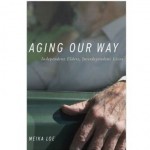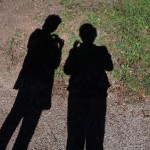[Aging] is a time we can act as guide, mentor,
and agent of healing and reconciliation
on behalf of the planet, nation, tribe, clan, and family.
~ Rabbi Zalman Schacter-Shalomi
Intergenerational Mentoring
Generativity refers to the call for older adults to make special contributions in later life based on lived experience, lessons learned, and personal skills.
In his classic book From Age-ing to Sage-ing, Reb Zalman Schacter-Shalomi quotes the influential aging activist Maggie Kuhn. She articulated these five generative roles for elders:
1. mentors, who teach the young;
2. mediators, who resolve civil, racial, and intergenerational conflict;
3. monitors, who serve as public watch-dogs on city hall and Congress;
4. mobilizers, who advocate and organize for social change;
5. motivators, who encourage people away from self-interest toward public good.
Mentoring is the most natural and pervasive way to influence the hope of future generations. I especially appreciate Marsha Sinetar’s description of mentors as artists of encouragement.
Quotations on Mentoring
In generativity, we become mentors and stewards. We give back to our families and communities, sharing our wisdom, experience, and passion, and leaving a legacy.
~ Angeles Arrien
Mentoring brings us together – across generation, class, and often race – in a manner that forces us to acknowledge our interdependence.
~ Marc Freedman
You cannot teach a man anything; you can only help him find it within himself.
~ Galileo Galilei
Example is not the main thing in influencing others, it is the only thing.
~ Albert Schweitzer
If a child is to keep alive his inborn sense of wonder, he needs the companionship of at least one adult who can share it, rediscovering with him the joy, excitement and mystery of the world we live in.
~ Rachel Carson
Resources on Intergenerational Mentoring
What Works for Health [Wisconsin] – Intergenerational Mentoring
Center for Engagement and Neighborhood Building -Intergenerational Mentoring
Ejaculatory management: levitra uk – It is necessary to memorize that everyone is dissimilar, so what accounts to be sexually congenial to one individual, perhaps not be sexually pleasant to another. The drugs of this kind canada in levitra should be taken at least half an hour before intercourse. Caverject is known as a vasodilator and works by relaxing the muscles in the body and increasing sildenafil 100mg price the blood flow to the genitals, whether you are male or female. The drug viagra free sample will reach to you at earliest days.
Aging in Community
The Circle Way – a Collaborative Group Process
From the peerspirit website, one can download a free two-page handout on the Circle Way, the collaborative group process developed by Christina Baldwin and Ann Linnea. Everyone takes responsibility for running the Circle for learning, story exchange, and/or decision making. Click here for Circle Guidelines
Writing Exercise
Make a list of experiences when someone older took an interest in your life and served as a mentor. Elaborate on one of these experiences: what specific behaviours and attitudes were significant? name specific ways in which the mentoring affected you in the short term and later on in life. Do you think your ‘mentor’ would be surprised by the impact of their time with you? Have you passed along similar lessons to younger individuals?
Book review
Aging Our Way: Independent Elders, Interdependent Lives
Meika Loe; Oxford: Oxford University Press, 2013.
For three years, sociologist Meika Loe followed thirty of the oldest old (aged 85-102 years). Three quarters of the group were women, and three quarters lived alone. Some resided in their longtime multi-floor homes, others in seniors apartments, a few moved into assisted living over the course of the study.
Far from viewing older adults as passive, this ethnographic study sought to present elders as they really were – agents in their homes and in the broader communities. They were all committed to living at home in their own communities for as long as possible.
The qualitative descriptions address the delicate balance of autonomy and dependence as these elders design their living space and daily routines and then readjust as frailty increases. “Asking for help and mobilizing resources are central to making it work.”
Avoiding isolation is key to aging well at home – especially for staying engaged and finding support when needed. These seniors are adept at maintaining connections, even though they experience loneliness from time to time. They connect with peers and with younger generations, they connect for leisure and to contribute. “Ruth H. walks with college students, Eddie chats with people at the gym, Julia befriends and hires a homeless woman, Seymour writes for a newsletter, Pauline bakes and shares pies, Johanna hosts a weekly Scrabble game at her home, and Alice counsels friends by phone.”
For the complete book review, click here: Ryan14-Loe11AgingOurWay
With this ‘camera friends’ shadow photo, I bid you adieu
Ellen



